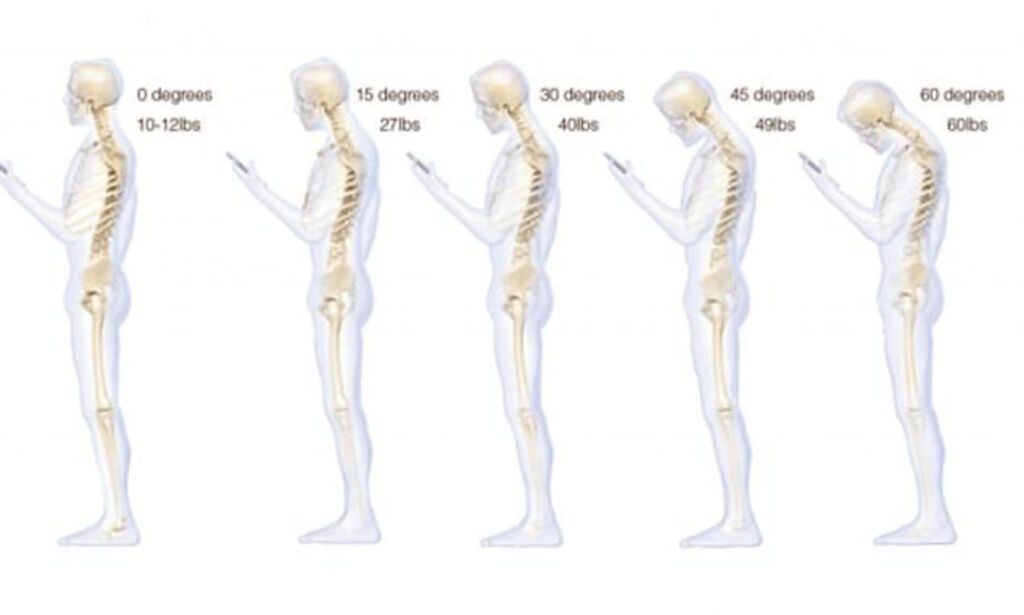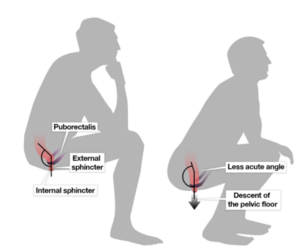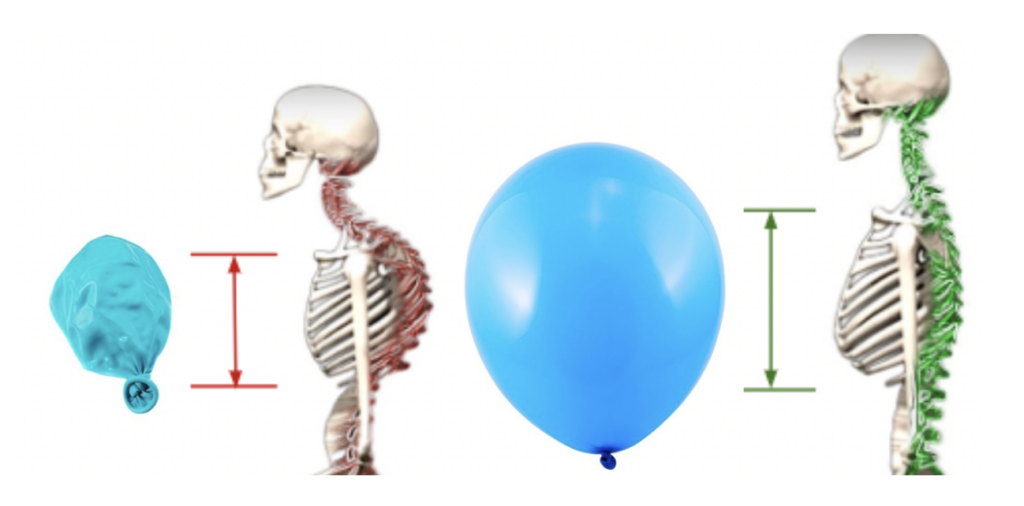From our mood to our gastrointestinal system, posture affects our health and well-being in more ways than most of us may realize.
Now more than ever, we’re prone to chronic postural imbalances due to hours spent sitting at a desk, driving, or perpetually looking down at our phones. Many of us wear restrictive shoes or sling heavy backpacks and purses over our shoulders. Additionally, emotional and psychological imbalances like depression, anxiety, and stress can make us slump. Studies have shown that posture and pain may even be correlated.
Here are the five ways that posture can impact your health.
1. Musculoskeletal System
Our bodies are held together by something called fascia, which is a thin casing of connective tissue that surrounds and holds every organ, blood vessel, bone, nerve fiber, and muscle in place. Everyday activities can put excessive stress on the musculoskeletal system, leading to imbalances in the muscle and fascial systems.
Take, for example, high heels, which cause the body to redistribute the force of gravity by negatively altering posture by either rounding or flattening spinal curves and shifting the tilt of the pelvis. This can also cause muscular imbalance and limit our range of motion.
WATCH NOW: Change Your Posture, Change Your Life Webinar
Heels and narrow shoes can cause chronic restriction. Repeated studies have shown that this leads to various foot disorders and injuries, such as metatarsal pain, Achilles tendon tension, and plantar fasciitis, in addition to a limited range of movement.
As we evolved, we now tilt forward more and more to look down at our devices. In so doing, we put additional load and gravitational forces on the neck, which is then transferred down the spine to the rest of the body. The chronic and repetitive nature of this motion can cause the muscles, bones, and fascial tissue to adapt to that posture, eventually causing pain and disruption to the musculoskeletal system.
2. Gastrointestinal Functions
Posture can also impact our gastrointestinal health, starting with how we empty our bowels.
Research shows us that defecating in a deep squat position changes the angle of our bowels, improving our ability to empty our bowels with less strain. While this can be a more natural position for us to do our business, this is not the position we adopt when sitting on a modern toilet.
Additionally, a poor, hunched posture can result in gastroesophageal reflux disease (GERD), a very common ailment. This occurs when stomach acid repeatedly flows back into the tube connecting our mouth and stomach (esophagus), causing damage to the soft tissue. If you slouch during or after eating, this puts pressure on the abdomen, which can force stomach acid in the wrong direction–backward toward your esophagus.
3. Respiratory Function
Posture also affects the respiratory function of our bodies, or simply our ability to breathe. Having a forward head posture can reduce the amount of air we can inhale and exhale. Additionally, it can decrease the activation of the respiratory muscles and structural support for the spine.
4. Circulatory / Nervous System Health
Posture also directly impacts our nervous system, which is the passage of electrochemical signals needed to create movement. Just as a kinked water hose cannot allow water to flow, a body with poor posture also restricts blood movement and vital nutrients, including oxygen.
A good example of this is when our foot or hand falls asleep. Most of us have experienced this sensation, a normal result of nerve compression. The tingling feeling is often easily alleviated by shifting your position, which removes the pressure and restores the sensation in those limbs.
5. Mental Health
In addition to physical health, posture also affects our mental health. The reverse is also true: our mental health affects our posture.A study published in 2010 looked at posture and body image in patients with major depressive disorder during episodes and after drug treatment. During episodes of depression, individuals with major depressive disorder experience changes in posture.
Research also shows that the body stores both physical and emotional trauma. Consciously adopting an upright seated posture during stress has been shown to increase positivity and self-esteem compared to a slumped posture.
How To Improve Your Posture
Now that you see why posture is important, you may want to take some action to improve it.
To learn more, watch our nutrition and exercise physiology expert Peter Pace demonstrate exercises to help restore your posture in our webinar recording titled “Change Your Posture, Change Your Life” (The exercises start at the 31-minute mark). Watch now!



 Peter Pace
Peter Pace 




